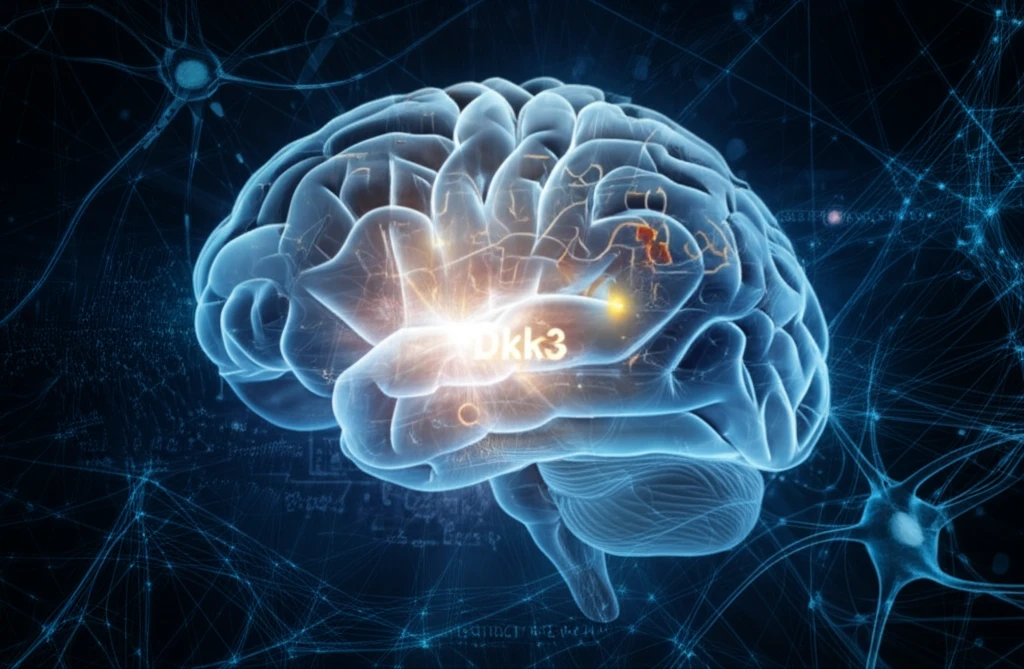
Unlocking Hope: How a Protein Called Dkk3 Could Revolutionize Alzheimer's Treatment
"Groundbreaking research reveals the potential of Dkk3 to combat Alzheimer's, offering new avenues for treatment and improved cognitive function."
Alzheimer's disease, a progressive and debilitating neurological disorder, affects millions of people worldwide. Characterized by memory loss, cognitive decline, and behavioral changes, Alzheimer's has a profound impact on individuals, families, and society as a whole. While current treatments offer limited benefits, a new wave of research is providing fresh hope for those affected.
Recent studies have pinpointed the role of a protein called Dickkopf 3 (Dkk3) in potentially altering the course of Alzheimer's. This innovative research suggests that Dkk3 could not only mitigate some of the disease's detrimental effects but also offer a new target for therapeutic interventions. In this article, we will delve into the exciting findings, exploring how Dkk3 might change the future of Alzheimer's treatment.
This article explores the science behind Dkk3, its relationship with Alzheimer's, and the potential implications for patients and their families. By examining the current research, we aim to offer a comprehensive understanding of how Dkk3 could represent a significant step forward in the fight against Alzheimer's disease.
The Science of Dkk3: Understanding the Key Player

Dkk3, a protein naturally found in the brain, is a modulator of the Wnt signaling pathway, which is crucial for brain development and function. This pathway plays a vital role in regulating cell growth, differentiation, and communication. In the context of Alzheimer's disease, the Wnt signaling pathway often becomes dysfunctional, contributing to the progression of the disease.
- Wnt Signaling Pathway: Essential for brain development and function.
- Dysfunctional Pathway: Contributes to the progression of Alzheimer's.
- Dkk3's Role: A modulator of the Wnt signaling pathway, with potential therapeutic applications.
Looking Ahead: The Future of Dkk3 in Alzheimer's Treatment
The research into Dkk3 represents a significant step forward in the fight against Alzheimer's disease. While more research is needed, the initial findings are promising, offering the possibility of new therapeutic strategies. This could result in better treatment options and improved outcomes for those affected by this complex condition. The ongoing work on Dkk3 highlights the critical importance of scientific investigation and the potential to transform the landscape of Alzheimer's treatment, providing a beacon of hope for the future.
